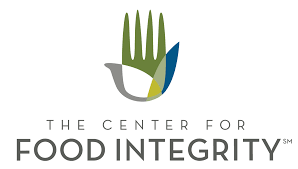
GLADSTONE, Mo. – Wednesday, Sept. 29, 2021 – New research from The Center for Food Integrity (CFI) identifies driving factors of consumer acceptance or rejection of technology, providing farmers and other organizations with insights to advance the innovation crucial to U.S. agriculture and a safe, sustainable food supply.
“Agriculture has a rich history of innovation,” said Charlie Arnot, CFI CEO. “As farming and food production practices integrate more technology, it’s increasingly important for those in agriculture to understand the keys to successfully building support for technology so they can continue to make progress.”
In the research, conducted with support from the United Soybean Board (USB), CFI measured consumer attitudes regarding four agriculture and food technologies with the overarching goal to identify the drivers of consumer acceptance and rejection of technology as a whole. The technologies used as prompts in this study included gene editing in plants, gene editing in animals, plant-based meat and cultured (cell-based) meat.
Acceptance Drivers
Several consistent themes regarding support for and rejection of technology emerged in the study. Among the key drivers for acceptance:
- Belief that food resulting from technology use is safe to consume
- Information on food produced through technology is readily available, enabling an informed choice of voluntary exposure
- Benefits outweigh perceived risks
- Technology can help ensure a consistent supply of food
- Technology promotes greater sustainability by making more with a lesser environmental impact
“Consumers are concerned about the direct impact on them, ‘is the food I’m consuming safe and healthy?’” said Arnot. “That’s why there’s greater concern about technology like pesticides and gene editing, compared to drone technology or GPS systems.”
The research shows that consumers also trust in the organizations that approve and monitor the impact of technologies, and they prefer third-party, independent oversight, along with information from that third-party source.
For a technology to be accepted, the benefits of the technology must outweigh the perceived risk of consuming the end product.
“This study shows acceptance of ag technology is highly dependent on the tangible nature of the technology output,” said Arnot. “In other words, ingredients are not as ‘visible’ to consumers, while end products like meat sold in restaurants or grocery stores are very visible. The more tangible the product and perceived impact, the greater the need to deploy a strategic approach to earn acceptance.”
Additional findings show that Gen Z, millennials and early adopters (those that actively research and share information) are more accepting of technology to solve challenges. Generally, consumers in these groups also believe they are more knowledgeable about agriculture technology.
“It’s important that we engage these consumer segments as they will continue to drive broader consumer acceptance and have growing purchase power,” said Arnot.
CFI will detail findings during a free one-hour webinar on Monday, Oct. 25, at 2 p.m. CT. A registration link can be found on the home page at www.foodintegrity.org.
While the research shows only one in 10 feel they know a lot about the use of technology to grow food in the U.S., nearly two out of three have a very positive or somewhat positive impression of the use of technology.
“That points to a tremendous opportunity for those in agriculture and food to keep the momentum going and engage on the many benefits of innovation in producing safe, nutritious food to meet the needs of consumers and protect our planet,” he said.
To conduct the research, CFI applied a model on consumer acceptance of food technology published in the June 2020 issue of Nature Food by Siegrist and Hartmann. CFI research was conducted via survey in July 2021 across the U.S. and included a random sample representative of the larger population.
The Center for Food Integrity is a not-for-profit organization that helps today’s food system earn consumer trust. Our members and project partners, who represent the diversity of the food system, are committed to providing accurate information and working together to address important issues in food and agriculture. The Center does not lobby or advocate for individual companies or brands. For more information, visit www.foodintegrity.org.
The Center for Food Integrity is a not-for-profit organization that helps today’s food system earn consumer trust. Our members and project partners are committed to providing accurate information and working together to address important issues in food and agriculture. The Center does not lobby or advocate for individual companies or brands. For more information, visit www.foodintegrity.org.







